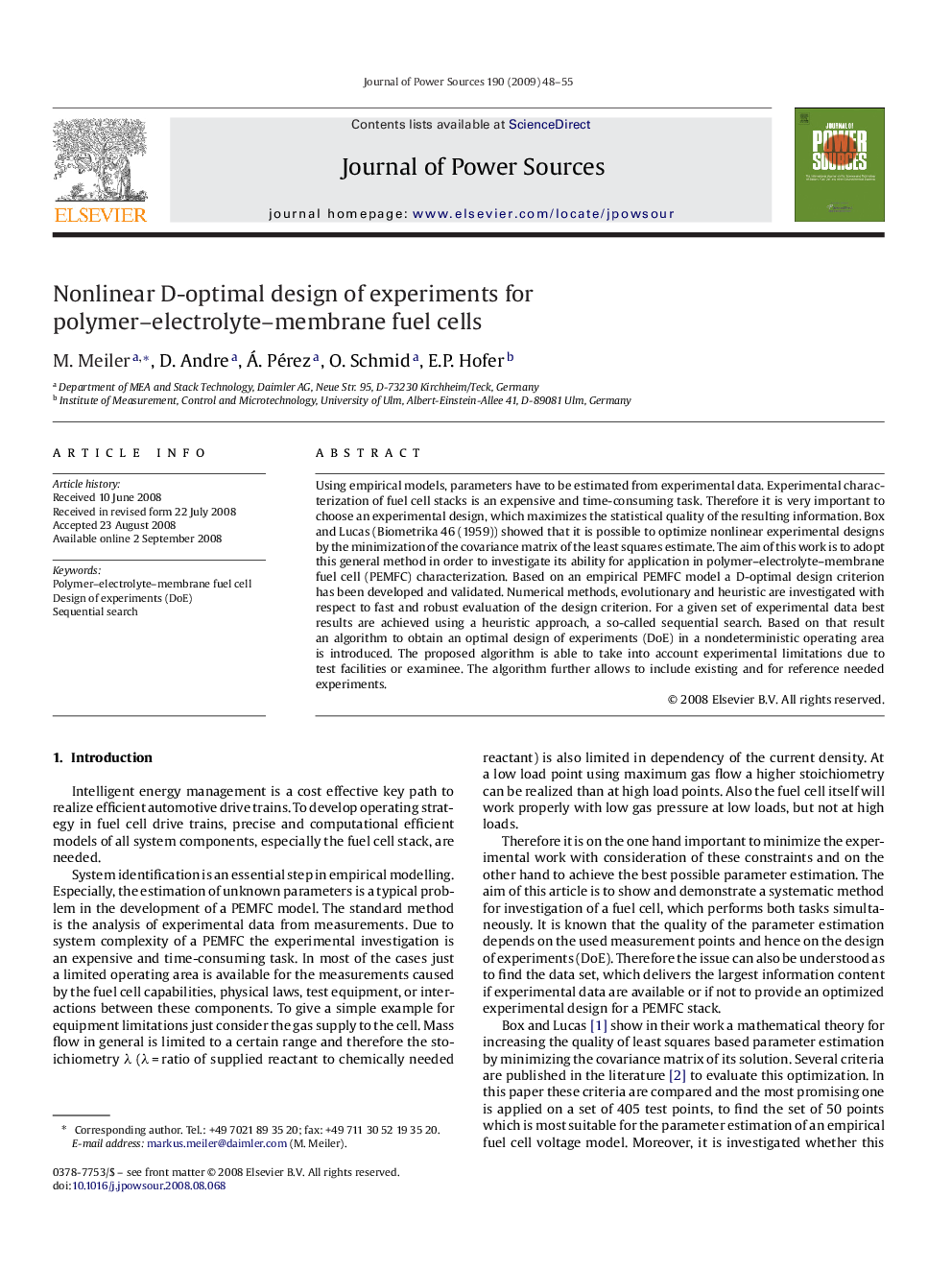| Article ID | Journal | Published Year | Pages | File Type |
|---|---|---|---|---|
| 1290957 | Journal of Power Sources | 2009 | 8 Pages |
Using empirical models, parameters have to be estimated from experimental data. Experimental characterization of fuel cell stacks is an expensive and time-consuming task. Therefore it is very important to choose an experimental design, which maximizes the statistical quality of the resulting information. Box and Lucas (Biometrika 46 (1959)) showed that it is possible to optimize nonlinear experimental designs by the minimization of the covariance matrix of the least squares estimate. The aim of this work is to adopt this general method in order to investigate its ability for application in polymer–electrolyte–membrane fuel cell (PEMFC) characterization. Based on an empirical PEMFC model a D-optimal design criterion has been developed and validated. Numerical methods, evolutionary and heuristic are investigated with respect to fast and robust evaluation of the design criterion. For a given set of experimental data best results are achieved using a heuristic approach, a so-called sequential search. Based on that result an algorithm to obtain an optimal design of experiments (DoE) in a nondeterministic operating area is introduced. The proposed algorithm is able to take into account experimental limitations due to test facilities or examinee. The algorithm further allows to include existing and for reference needed experiments.
